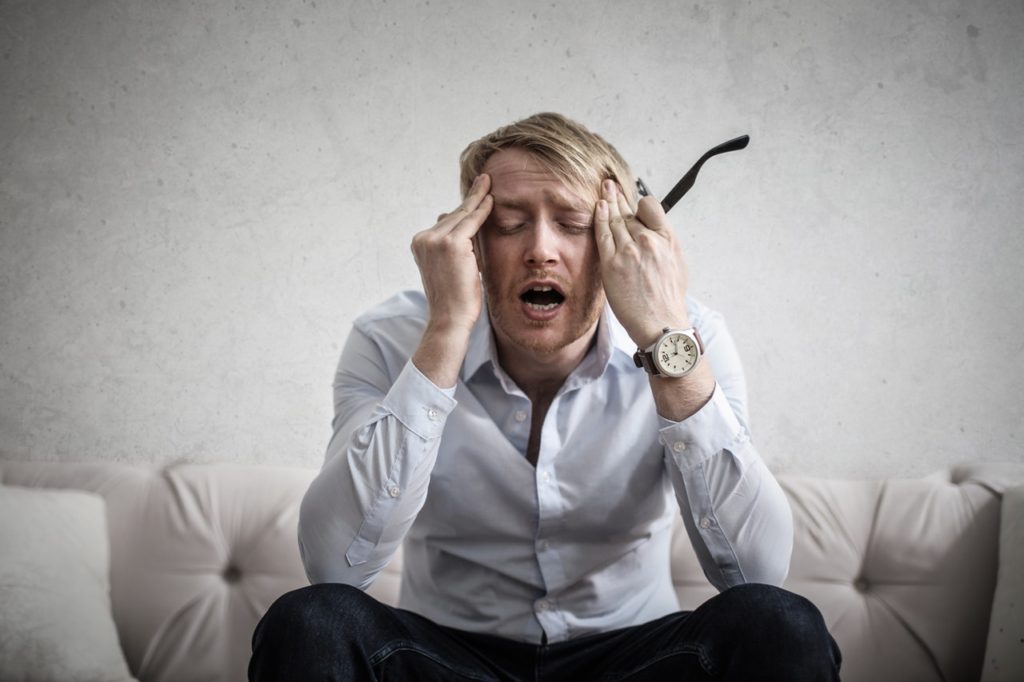Many of us deal with anxiety today. Sometimes it is fairly mild, like a constant whisper in the back of your head that reminds you of all the things that could happen to you or your loved ones. In other cases that whisper is more like a scream and it is hard to function or get restful sleep. In the more extreme form it can even lead to panic attacks and physical symptoms like chest pain. If you are someone suffering from anxiety, no matter the severity, know that you are not alone. Anxiety disorders affect around 40 million adults in the US today – or almost 1 out of every 5 – according to this article. The World Health Organization even found that globally, 300 million people suffer from an anxiety disorder.
There are several different kinds of anxiety disorders. These are the most common ones:
Generalized Anxiety Disorder
When people are extremely worried about nearly every type of situation and stressor in life, even when there may not be an obvious reason or when their worry is over an issue that could be easily resolved, they usually suffer from GAD.
Panic Disorder
Panic Disorder can be genetic and studies have shown that many areas of the brain are affected by it. Abrupt and ongoing attacks of extreme fear or panic are called panic attacks and are the main symptom for this form of anxiety disorder. It can feel like a heart attack, and the person can live in fear of when the next attack will strike. People will often try to avoid the triggers which set off a panic attack which can cause people to have a hard time just living life.
Social Anxiety Disorder/Social Phobia
The fear of being around other people can also be genetic. Having to make small talk or just being surrounded by others can be terrifying for these people. Typically, people affected by social phobia worry what others are thinking of them, they are terrified of being judged, and will stress over public events. Making friends can be extremely difficult, and there is often some physical reaction experienced when interacting with others. This can lead to social isolation.
These are some of the most common triggers for anxiety:
- Health issues: most often this would be a serious diagnosis like cancer or a chronic illness for you or someone you know, or possibly a death of someone you know
- Medications: some have active ingredients that cause anxiety, for example some cough medications, birth control pills and weight loss medications
- Caffeine
- Negative thinking
- Financial worries
- Parties or other social events: feeling like you need to make small talk or have conversations with a room full of strangers can trigger your anxiety
- Conflict: feeling like you upset someone or not being able to find solutions for problems in your relationships with others
- Stress: a too big workload, too high expectations from people around you, missing a train or being stuck in the drive through on your way to an important meeting, not being happy with your own performance all can cause stress which then in return triggers your anxiety
- Public speaking
- Drug use
A recent study shows that anxiety is at all time high for teenagers and young adults. 70 % of all teenagers that took part in this survey see anxiety and depression as a major problem for themselves and their peers. In this article, Metro State University of Denver professor and clinical psychologist Shawn Worthy says he’s seen a dramatic increase in the last 10 to 15 years of students requiring mental health services. A CU Denver student is quoted and says he spends large amounts of time trying to get perfect grades. The pressure to keep up with peers and be the best to earn scholarships and find a good job after you get your degree is real and can trigger anxiety at a young age.
How to treat anxiety
There are two main treatments for anxiety disorders: therapy and medications, and sometimes a combination of these two can be the best solution. It may take some trial and error to find out which treatment works best for you personally. A psychiatrist is needed to prescribe medications.
A great first step to take is to set up an appointment for a consultation and evaluation to figure out together with a therapist what form of your anxiety you have and how to best treat it.
Our therapists at Thrive are all trained in treating anxiety disorders and would love to meet with you. If you would like to set up a free consultation, please fill out this form or call us at 303-209-2592.

